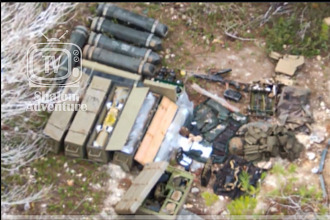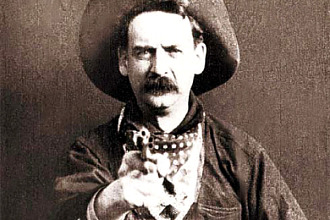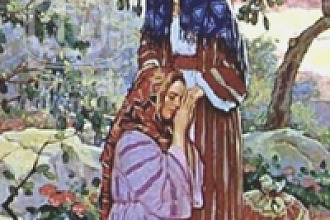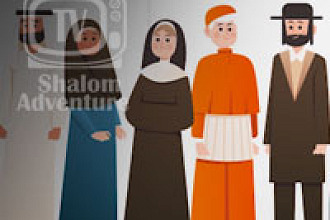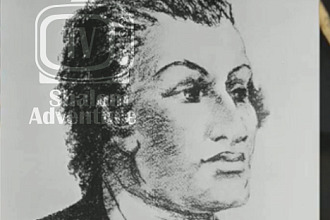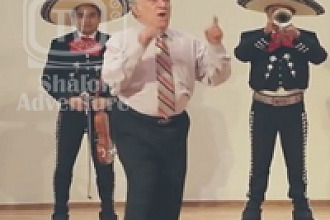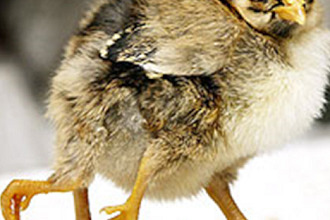The Jewish community of Kaifeng, a village in East Central China’s Henan Province roughly 600 kilometers southwest of Beijing, has remarkably sustained the test of time as one of the longest-lasting Jewish communities in history despite its relative isolation in the world.
Though never numbering more than perhaps an estimated 5,000 individuals at best, their commitment to preserving Jewish traditions to the best of their knowledge and ability—even without a rabbi or synagogue since the 19th century—is a noteworthy testament to keeping one’s genuinely held faith and convictions even without the framework of “organized religion.” While debates may forever linger over whether their lineage meets halachic standards, their dedication to observing God’s commandments and attempting to preserve their Jewish heritage despite political upheaval, natural disasters, and socioeconomic challenges renders this population a unique aspect of the Jewish diaspora.
Jewish merchants are believed to have first arrived in China during the Tang Dynasty, perhaps from Persia or surrounding areas, originally settling in coastal port cities before moving inland along the Yellow River to Kaifeng. Others later followed a more landlocked interior route into China, likely following the Silk Road or other trade routes, bringing their Jewish faith and traditions with them to the exotic Chinese land. Over time, the community in Kaifeng grew through successful integration into Chinese society and intermarriage with local populations. Over the generations, this resulted in Jewish offspring who appeared phenotypically Chinese in ethnicity but identified as Jewish culturally and religiously. By 1163, Kaifeng’s Jewish community built their first synagogue.
In this time period, most of Kaifeng’s Jewish population prospered, working in various professions such as merchants, farmers, soldiers, doctors, and even government officials. Many Jewish people at this time achieved scholarly recognition in Chinese universities while holding on to their Jewish traditions. Though some of their traditions may have inadvertently absorbed some local Confucian and Daoist influences, their hearts remained committed to the Torah and the mitzvot, keeping Shabbat, observing the dietary laws, circumcising their male descendents, and passing Jewish names to their children and grandchildren.
Over centuries, the greatest challenge faced by Kaifeng’s Jewish community was not persecution or anti-Semitism or the Chinese government, but rather the periodic flooding of the Yellow River, which repeatedly damaged their synagogue and Torah scrolls. Reconstruction of the synagogue was a continual process over the centuries, further complicated by Kaifeng’s geographical isolation during times of political upheaval in China’s history. By the 1600s, wars had left the Jewish population basically impoverished.
In the mid-19th century, the economic situation had deteriorated further for the Kaifeng Jewish population. Severe flooding and severe impoverishment of most of the population led the community to sell six Torah scrolls and 63 liturgical books to European collectors in a desperate bid for survival. The synagogue was eventually sold to Canadian Anglican missionaries.
Missionaries occasionally sought to assist in reviving the Jewish community of Kaifeng, though skepticism lingered about their motives, as many feared evangelism rather than genuine humanitarian aid. Others were open to help no matter the source of the assistance, desperate to better their lives and lift their families out of poverty even if the assistance came from Christians. In the 1980s, renewed interest in Jewish heritage led to community gatherings, including Passover Seders, as the community had opportunities to learn about Jewish history and culture from the outside world.
In the 21st century, crackdowns on unauthorized religious activities—including Judaism—forced the remaining Jews of Kaifeng to practice their faith in secrecy. Although these government policies primarily targeted such religions as Christianity and Islam, they effectively erased any remaining Jewish communal life in Kaifeng, as Judaism was neither a state-approved religion nor a national minority status accepted by the Chinese government. Synagogues, community centers, museums, and schools were subsequently shut down in Kaifeng, and those practicing the faith were basically driven underground if they desired to continue practicing Judaism as they knew it.
Today, it is difficult to estimate how many Jews remain in Kaifeng due to the underground status of Judaism in China. Some estimate that only 500 to 1,000 individuals remain.
Of those who do remain, it is believed that few actually observe Jewish holy days, and knowledge of the Hebrew language is nearly non-existent in mainland China. Basically, these individuals are believed to practice the Levitical dietary laws and self-identify as Jewish, even if their practices may otherwise diverge from more mainstream Judaism and otherwise mimic typical Chinese cultural norms. It is questionable if Shabbat observance is a tradition that has remained.












